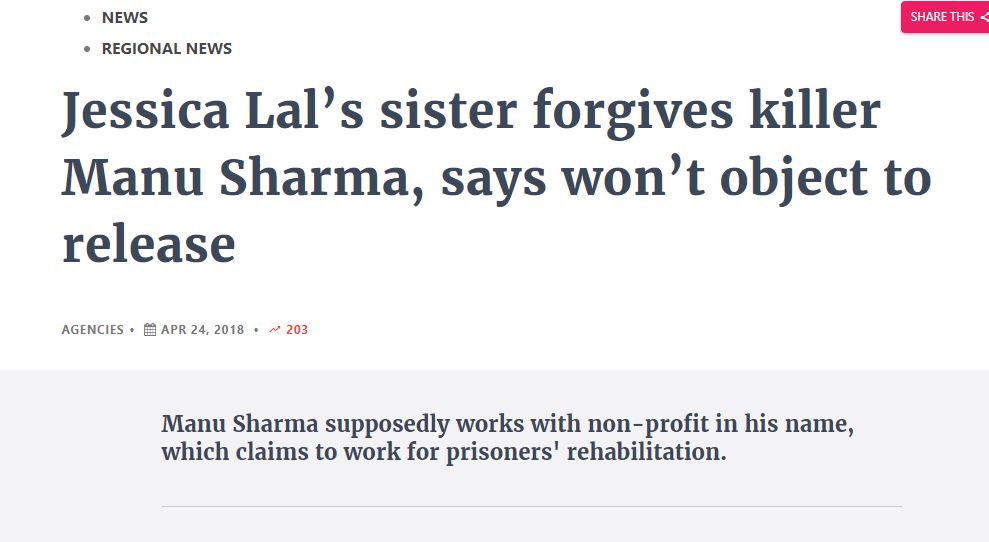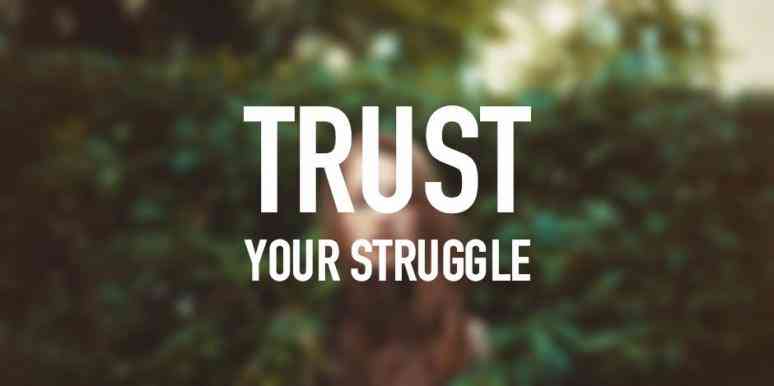How important is forgiveness for Happiness? I would say most important! The topic of forgiveness is all over news these days and from what I have read there seem to be 2 opinions on it. One group feels forgiveness is important for their own peace of mind and happiness while the other feels that such forgiveness results in letting the convicted go easily. Sabrina Lal’s decision to forgive her sister Jessica Lal’s killers has evoked all kinds of emotions.



While both sides may think that they have a point in their minds but ultimately forgiveness is better and must for happiness. Sometimes the act of forgiveness is hesitated upon or even criticised as it may be seen as a gesture of reconciliation or condoning the wrong Act. In fact it’s important to know that an act of forgiveness is for your own sake:
This is what forgiveness is not.
- Forgiveness is not something which will arise as a feeling more often it is a considered decision for your own good. Choose Forgiveness for Happiness.
- Forgiveness is not an act of weakness. On the contrary a lot of strength is required to acknowledge pain, declare it, and forgive it.
- Forgiveness does not mean pretending it didn’t happen or hiding from it.
- Forgiveness does not mean condoning or excusing a wrong. And it doesn’t justify the wrong. One can forgive the person without excusing the act.
- Forgiveness is not the same as reconciling. Reconciliation may follow forgiveness, but we can forgive an offender without patching up the relationship.
- Forgiveness is not based on the wrongdoer’s actions. Even if the other person never apologizes and asks for forgiveness, one can forgive.
- Forgiveness is not conditional. It’s not an If you do this…this…and this, then, and only then, I will forgive you.
- Forgiveness is not justice. Justice usually involves an acknowledgement of wrongdoing, an apology, and some form of reward or punishment. Forgiveness can occur whether justice has been done or not.
- Forgiveness is not about changing the other person, their actions, or their behaviour.
- Most importantly forgiveness is not about changing the past; it’s about changing the future. Forgiveness accepts and addresses the past but focuses on the future. It looks toward a future of healing and hope.
Why we should forgive for Happiness?
When you really forgive someone, you are making a decision to release, embrace, pardon, and grow. Forgiveness is first step towards Happiness and peace.Like Sabrina also said “He has served his sentences and I am done with it… In my own mind I have forgiven him.”
“It will be like a catharsis to forgive and move on. I also need to get on with my life,” she said, adding, “I don’t want to hold on to any more anger or hurt. I feel that he has served his sentence. I don’t feel there is any need to hanker about the situation,”
She is right for our own happiness we need to forgive.
It’s something personal and when a person decides to forgive at times it may be difficult for others to understand why? But the bottom line is nothing really comes off holding on to a grudge, however serious it may be and the ultimate test is whether you can be indifferent to that person or the act.
Somewhere deep down we all look for inner peace and happiness and forgiveness allows us to have it. Till the time you don’t forgive you can’t forget and move on.
There are immense benefits and various studies and research have highlighted the benefits time and again. Here are some significant findings.
First, there’s a sizable and immediate mental-health boost. Forgiveness expert Worthington says that an eight-hour forgiveness workshop can reduce subjects’ depression and anxiety levels as much as several months of psychotherapy would.
But beyond that, forgiving people are remarkably physically healthier than unforgiving ones. They chose forgiveness for happiness.
“ A 2005 study published in the Journal of Behavioural Medicine found that participants who considered themselves more forgiving had better health across five measures: physical symptoms, the number of medications used, sleep quality, fatigue, and medical complaints. The study authors found that this was because the process of forgiveness tamped down negative emotions and stress.
“The victim relinquishes ideas of revenge, and feels less hostile, angry, or upset about the experience,” the authors wrote.”
“In 2011, a group of researchers asked 68 married couples to rehash a recent fight, and they recorded the discussion on video. The participants then watched the videos back and described how conciliatorily they behaved toward their partners, using phrases like “I tried to comfort my partner,” or conversely, “I wanted to keep as much distance between us as possible.” The scientists found that the more peaceable the “victims” of each fight were (the ones accused of not doing their fair share of the chores, say, or of invading the other’s privacy), the lower their blood pressure readings were. Their partners’ blood pressure was lower, too. In other words, both granting and receiving forgiveness seemingly brought down the tension level of the entire marriage. Importantly, it didn’t matter whether the instigator of the fight had tried to make amends: “The power to grant forgiveness (and its benefits) rests with victims,” the authors concluded.”
Surprisingly it has been found that forgiveness can also help with things that have nothing to do with physical or mental health. In a significant finding from a study forgiving study participants perceived a hill to be 5 degrees less steep than unforgiving ones did.(Social Psychological and Personality Science)
“The study published in Social Psychological and Personality Science, 46 participants were divided into two groups: One set were asked to write about a time when someone wronged them and they forgave the person, and the other group was asked about a time when they did not forgive the offender. Afterward, all of the subjects were led outside to gaze upon a large hill. The “unforgiving” group thought the hill was about 5 degrees steeper than the forgiving group did. Then, all the participants were asked to jump up and down. The forgiving group jumped seven centimetres higher, on average.
The forgiving group jumped seven centimetres higher!!!!
The experiments showed how a grudge can weigh a person down—literally—says Ryan Fehr, an assistant professor of management at the University of Washington and author of the study.
“If you’re primed with having a heavy burden, it makes you feel heavy,” he said. “The metaphor becomes real life.”
So don’t let grudges ruin your health and hold you down. Let go and move on. Forgive, Forgive, Forgive be healthier , Be happier.
And right now Today itself write down the names of 3 people you need to forgive and then go ahead and forgive them. It will change your life.
You may also like Letters of Forgiveness to myself
Please comment,share and Like.










